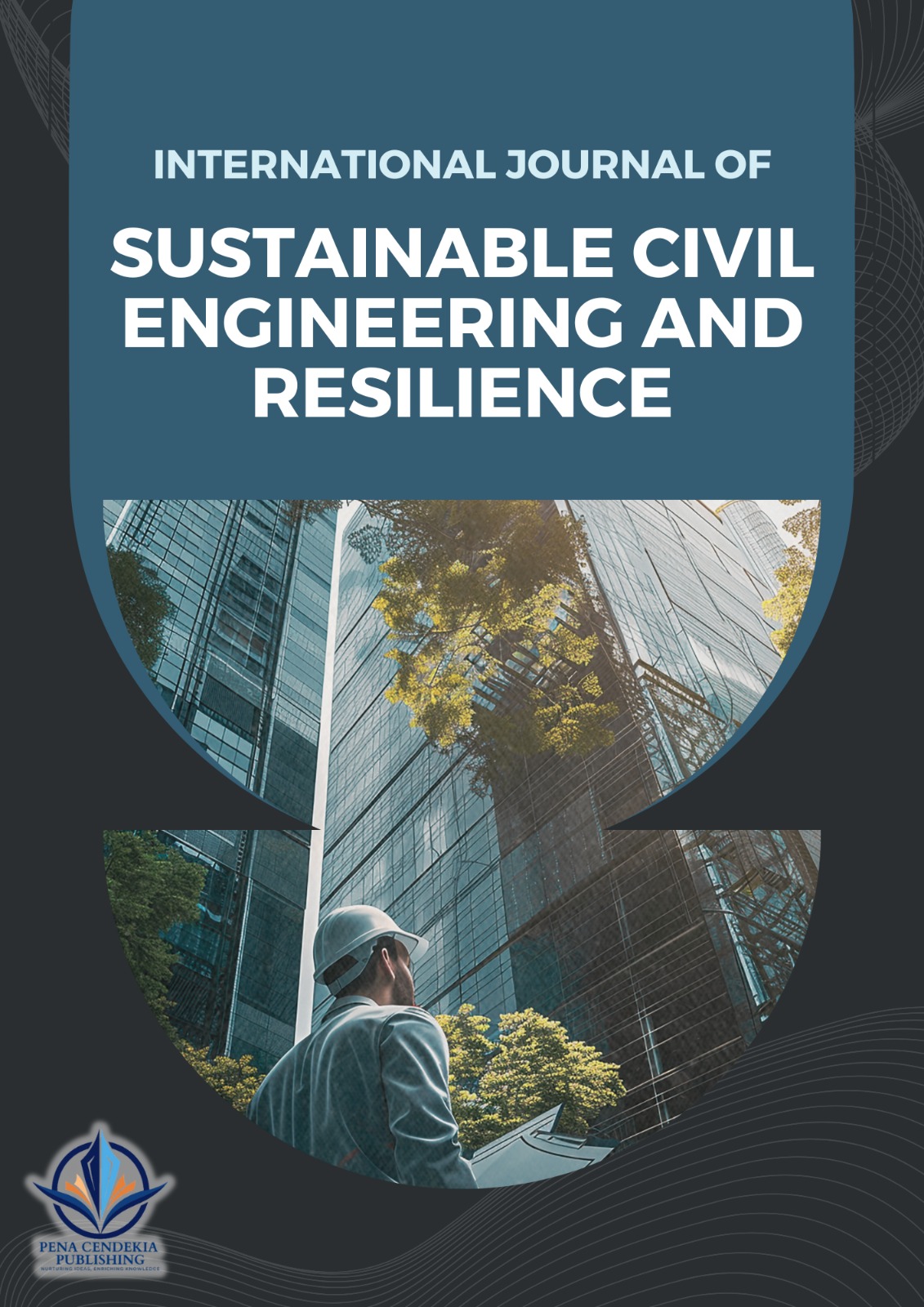
COVER
THE PUBLISHER

"NURTURING IDEAS, ENRICHING KNOWLEDGE"
Knowledge has power, but it's much more powerful when it is shared
AIMS AND SCOPES
The International Journal of Sustainable Civil Engineering and Resilience (IJSCER) is a peer-reviewed, open-access journal committed to publishing high-quality research that advances sustainable and resilient civil engineering practices. The journal serves as a global platform for researchers, academics, and industry professionals to share novel findings, innovative technologies, and best practices in sustainable infrastructure development.
IJSCER emphasizes interdisciplinary research that integrates engineering, environmental sciences, materials technology, and policy frameworks to enhance the resilience and sustainability of the built environment. The journal welcomes original research articles, review papers, and technical notes that address emerging challenges and solutions in civil engineering sustainability.
IJSCER follows a rigorous double-blind peer-review process and adheres to high ethical publishing standards, ensuring the dissemination of impactful and high-quality scientific contributions.
The International Journal of Sustainable Civil Engineering and Resilience (IJSCER) aims to provide a comprehensive platform for the dissemination of research and technological advancements that contribute to the sustainability, resilience, and efficiency of civil engineering infrastructure. The journal focuses on interdisciplinary approaches that combine engineering, environmental science, material innovation, and policy-making to address contemporary challenges in infrastructure development.
The journal covers, but is not limited to, the following research areas:
Sustainable Construction Materials and Technologies – Development and application of eco-friendly materials, recycled materials, and advanced composites for construction.
Resilient Infrastructure Systems – Engineering solutions to enhance the resilience of buildings, bridges, tunnels, and urban infrastructure against environmental and natural hazards.
Renewable Energy Integration in Civil Engineering – Implementation of solar, wind, and other renewable energy sources in infrastructure projects.
Water Resource Management and Resilience – Sustainable approaches to water conservation, wastewater treatment, and flood mitigation.
Sustainable Transportation Systems – Green mobility solutions, low-carbon transport infrastructure, and smart transportation systems.
Geotechnical Engineering for Sustainability – Innovations in foundation engineering, soil improvement, and geotechnical hazard mitigation.
Environmental and Water Resources Engineering – Sustainable waste management, pollution control, and water-sensitive urban design.
Climate Change Adaptation and Mitigation – Engineering strategies to address climate resilience in infrastructure planning.
Digital Technologies for Sustainable Civil Engineering– Integration of AI, BIM, IoT, and digital twin technologies in civil engineering applications.
Policy and Governance for Sustainable Infrastructure – Regulatory frameworks, sustainability assessment methods, and decision-making strategies.
Social and Economic Aspects of Sustainable Civil Engineering – Socio-economic impacts of sustainable infrastructure and community-driven engineering solutions.
Case Studies and Best Practices – Real-world applications of sustainable and resilient engineering solutions across different regions and contexts.
IJSCER is dedicated to publishing high-impact research that fosters innovation and knowledge exchange in sustainable civil engineering, supporting the transition towards a more resilient and environmentally responsible built environment.
INDEXING AND ABSTRACTING





International Journal of Sustainable Civil Engineering and Resilience (IJSCER) is licensed under a Creative Commons Attribution-NonCommercial 4.0 International License.
DISTRIBUTION OF AUTHORS
Malaysia


